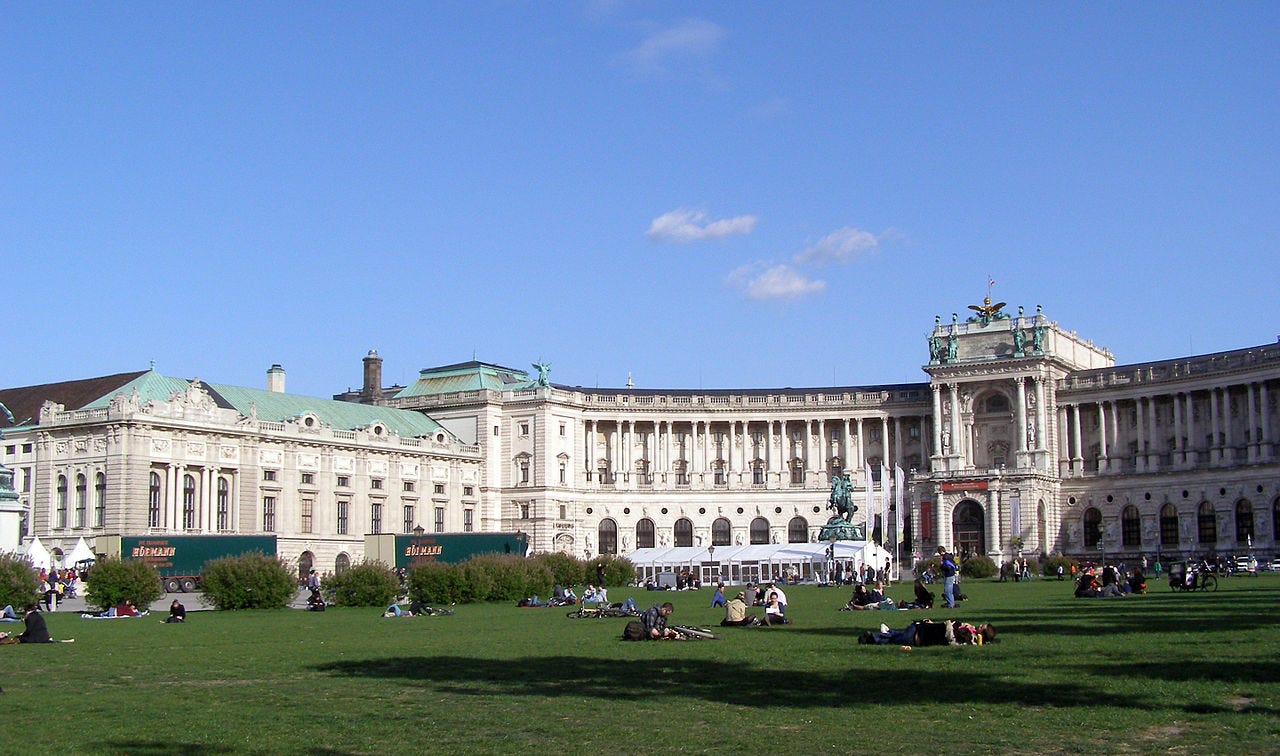Would You Take Sputnik V?
Austria is reportedly in negotiations with Russia over a shipment of one million doses of the Sputnik V vaccine
Servus!
If you had the opportunity to get a coronavirus vaccine that had not yet been approved by the relevant medical authority, would you take it? This question could, for Austrians, soon become more than just a hypothetical. Before Easter, it was reported that the Austrian government had entered into talks with their Russian counterparts concerning the procurement and delivery of one million doses of the Sputnik V coronavirus vaccine. 300,000 doses would arrive in April, 500,000 in May, and another 200,000 in June, according to the wire service APA.
To date, four vaccines have been approved by the European Medicines Agency (EMA) for use in the EU: Pfizer/BioNTech, Moderna, Oxford/AstraZeneca, and most recently the single-shot Johnson & Johnson. An additional three remain under rolling review, which is to say, evaluation prior to possible approval and distribution within the EU. The German CureVac jab’s review began February 12. On March 2 began the rolling review of the Novavax vaccine developed in the United States. And two days later, work reviewing the Sputnik V developed by Russia’s Gamaleya National Centre of Epidemiology and Microbiology started. Word on the review’s progress has not been forthcoming.
Were Austria to actually receive and administer doses of Sputnik V prior to EMA approval, which is has the right to do, it would be an outlier in the EU—but it would not be entirely alone. Hungary was the first EU member state to approve the vaccine back in January; 1,600,000 doses of Sputnik V were expected to have arrived in Hungary on or before March 23. Slovakia placed its own order for 2,000,000 rounds of Sputnik V, a move which led to a crisis of government and the resignation of the country’s prime minister, Igor Matovič. The Czech Republic made noises about, though does not seem to have ordered, the Russian jab.
The move towards Sputnik V is one born out of political panic and the failure to adequately utilize the EU’s own vaccine procurement and distribution program, as discussed in last week’s newsletter (“Kurz’s Vaccine Diplomacy”). Under pressure to do something to speed up the vaccination rollout, Austria may turn to an unproven and unapproved vaccine. In this respect, Hungary should be a cautionary tale. At the start of the year, the Orbán regime pivoted to Russia and China in search of extra doses, though neither jab did much to stop their coronavirus case numbers from shooting way above the EU average by the end of March. Sputnik V was, for Hungary, a gesture, not a solution.
Austria also has to consider the political ramifications of bidding for Sputnik V. As of writing, Russia is conducting a military build-up on its western border with Ukraine where the EU and NATO fear possible armed escalation. It is a reminder that though Russia is too weak to be a real alternative or pole in global politics—only the United States and China can lay claim to superpower status; Russia’s influence extends about as far as Belarus, parts of eastern Ukraine, and Syria—it is strong enough to act as a destabilizing force.
Sputnik V is not merely a vaccine but a tool of soft power with the potential to cause a split in the EU at a time when it is already divided against itself on the question of responsibility for the slow vaccine rollout. Certain German politicians—never ones for being able to see the Russian menace when it is staring them in the face—like The Left’s Bodo Ramelow, governor of the state of Thuringia, have talked up Sputnik V, making themselves useful idiots in the process. A delivery of one million doses of the vaccine to Austria would be Russia’s biggest COVID-related propaganda victory to date.
Bis bald!
The balcony from which Adolf Hitler proclaimed the Anschluss, the annexation of Austria by Germany, on March 15, 1938 has been shut off since 1945. Should it now be opened to the general public? You can read more about this thorny debate in my report now out on Moment’s website.
Thank you for subscribing to the Vienna Briefing. Do you know someone who would be interested in receiving this newsletter? Consider sharing it with them today.
Lockdown Continues
The lockdown affecting the states of Vienna, Lower Austria, and Burgenland has been extended to April 18, the states’ governors confirmed Tuesday. Intensive care beds reserved for coronavirus patients were at 61.3 percent capacity in the Austrian capital as of Monday.
Church Tax Attack
Sebastian Kurz gave his approval for the removal of the Catholic Church’s tax privileges, according to leaked text messages between the chancellor and Thomas Schmid, then-general director of the finance ministry.
Legendary Journalist Mourned
The journalist, writer, and broadcaster Hugo Portisch died April 1 at the age of 94. Portisch became widely known in Austria as a commentator and correspondent for the state broadcaster ORF and for his documentary series about the history of the Austrian Republic.






